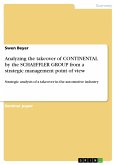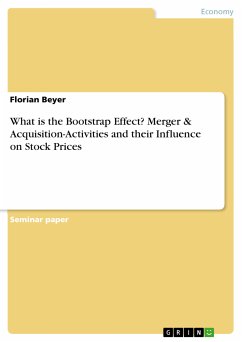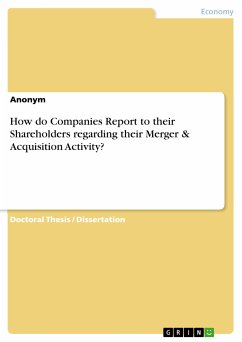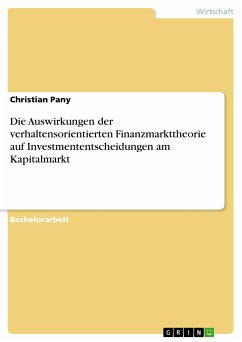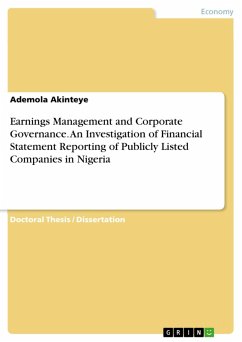Essay from the year 2018 in the subject Business economics - General, grade: A, University of Edinburgh (Edinburgh Law School), course: Corporation Law and Economics, language: English, abstract: This essay examines the question whether allowing directors to implement anti-takeover defences is beneficial for all corporate constituencies. Beginning with the classification of the topic in the law and economics context of the market for corporate control in Chapter 2, I will briefly outline in Chapter 3 the scenarios in which anti-takeover defences usually come into operation, namely hostile takeovers. Chapter 4 presents the most common anti-takeover defences and sets out the legal framework to what extent directors are permitted to adopt such defences in accordance with the applicable law. A distinction is made between UK and US law, with the latter focussing on Delaware law, where more than a half of all US publicly traded corporations are established. The Delaware Court of Chancery and Supreme Court have developed an extraordinary body of jurisprudence concerning corporate takeovers and anti-takeover defences. Chapter 5 points out potential impacts on the various constituencies of a company and deals with the fact why their interests have to be regarded in the takeover context. Finally, Chapter 6 critically evaluates anti-takeover defences from different stakeholder perspectives and concludes that these are not beneficial for all corporate constituencies, but for directors only.
Dieser Download kann aus rechtlichen Gründen nur mit Rechnungsadresse in A, B, BG, CY, CZ, D, DK, EW, E, FIN, F, GR, HR, H, IRL, I, LT, L, LR, M, NL, PL, P, R, S, SLO, SK ausgeliefert werden.




